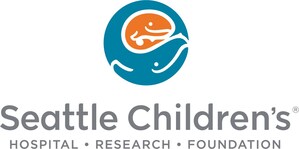Novel Diet Shows Promise in Treating Children With Crohn's Disease and Ulcerative Colitis
Study results show pediatric patients with active Crohn's disease and ulcerative colitis can reach remission with diet alone
SEATTLE, Dec. 28, 2016 /PRNewswire-USNewswire/ -- In a first-of-its-kind study published today in the Journal of Clinical Gastroenterology, researchers from Seattle Children's and Children's Healthcare of Atlanta, led by Dr. David Suskind, a Seattle Children's gastroenterologist, found that diet alone can bring pediatric patients with active Crohn's disease and ulcerative colitis (UC) into clinical remission.
In the small, prospective study, patients were put on a special diet called the specific carbohydrate diet (SCD) for 12 weeks as the sole intervention to treat their active Crohn's or UC. SCD is a nutritionally balanced diet that removes grains, dairy, processed foods and sugars, except for honey. The diet promotes only natural, nutrient-rich foods, which includes vegetables, fruits, meats and nuts.
At the end of the 12 weeks, eight out of the 10 patients who finished the study showed significant improvement and achieved remission from the dietary treatment alone.
"This changes the paradigm for how we may choose to treat children with inflammatory bowel disease," said Suskind.
To date, there have only been a few case reports where a whole food diet, like SCD, has been used as a potential treatment for inflammatory bowel disease (IBD). This study is the first to show, not just anecdotally, that the diet is safe and effective in treating pediatric patients with IBD.
IBD refers to several related illnesses that affect the digestive tract. Crohn's and UC are two forms of IBD.
"For decades or longer, medicine has said diet doesn't matter, that it doesn't impact disease," said Suskind. "Now we know that diet does have an impact, a strong impact. It works, and now there's evidence that it can move patients into remission."
At most centers across the country, treatment for IBD is usually limited to either treating patients with medications or steroids, which can often lead to life-long side effects. Another concern with these traditional treatments is that they only suppress the immune system, which doesn't treat the underlying issue of the microbiome, the bacteria that lives in the digestive tract. Researchers believe that IBD occurs when something goes awry between a person's genetic makeup, their immune system and their microbiome.
"Each person's disease is unique, just as each person is unique," said Suskind. "SCD is another tool in our tool box to help treat these patients. It may not be the best treatment option for everyone, but it is an effective treatment for those who wish to try a dietary therapy."
To learn more about SCD or to contact the Gastroenterology and Hepatology team at Seattle Children's for a second opinion, please call 206-987-2521.
To read about Adelynne's journey, visit Seattle Children's On the Pulse blog.
SOURCE Seattle Children's Hospital
Related Links
WANT YOUR COMPANY'S NEWS FEATURED ON PRNEWSWIRE.COM?
Newsrooms &
Influencers
Digital Media
Outlets
Journalists
Opted In





Share this article